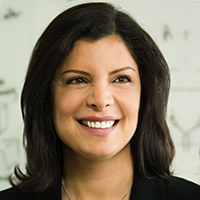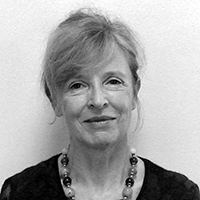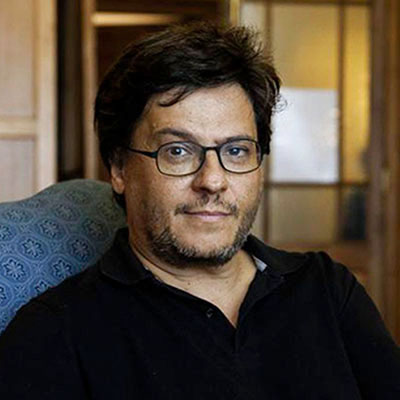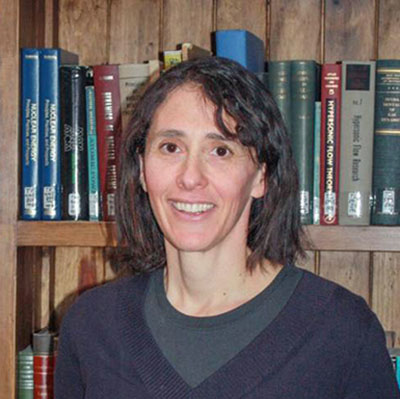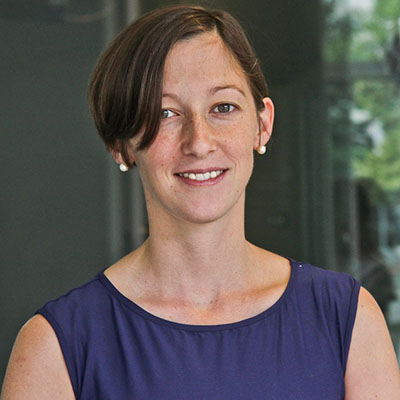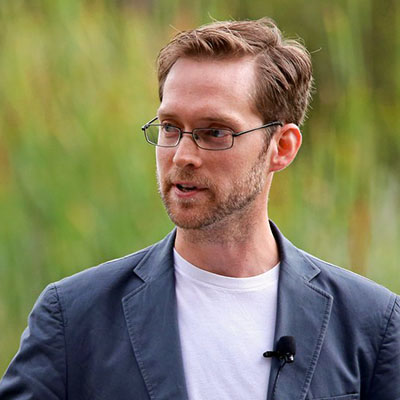
Upcoming events
Previous events
Just Machine Learning
Tina Eliassi-Rad
Northeastern University in Boston
Thursday, December 16 at 1:00 PM Mexico Time
Contact: cgg@unam.mx
http://www.youtube.com/c/CentrodeCienciasdelaComplejidadC3
Abstract:
Risk assessment is a popular task when machine learning is used for automated
decision-making. For example, Jack’s risk of defaulting on a loan is 8, Jill’s is 2; Ed’s risk of
recidivism is 9, Peter’s is 1. We know that this task definition comes with impossibility
results for group fairness, where one cannot simultaneously satisfy desirable probabilistic
measures of fairness. I will highlight recent findings related to these impossibility results
[1]. Next, I will present work on how machine learning can be used to generate
aspirational data (i.e., data that are free from biases present in real-world data). Such data
are useful for recognizing sources of unfairness in machine learning models besides biased
data [2]. If time permits, I will discuss the steps necessary to measure our algorithmically
infused societies [3].
[1] http://fitelson.org/exploring_impossibility.pdf
[2] http://www.eliassi.org/papers/davidliu-aies2021.pdf
[3] https://rdcu.be/cnvVp
Speaker Bio:
Tina Eliassi-Rad is a Professor of Computer Science at Northeastern
University in Boston, Massachusetts. She is also a core faculty member at the Network
Science Institute and at the Institute for Experiential AI, both at Northeastern. Prior to
joining Northeastern, Tina was an Associate Professor of Computer Science at Rutgers
University; and before that she was a Member of Technical Staff and Principal Investigator
at Lawrence Livermore National Laboratory. Tina earned her Ph.D. in Computer Sciences
(with a minor in Mathematical Statistics) at the University of Wisconsin-Madison. Her
research is at the intersection of data mining, machine learning, and network science. She
has over 100 peer-reviewed publications (including a few best paper and best paper
runner-up awards); and has given over 200 invited talks and 14 tutorials. Tina's work has
been applied to personalized search on the World-Wide Web, statistical indices of large-
scale scientific simulation data, fraud detection, mobile ad targeting, cyber situational
awareness, and ethics in machine learning. Her algorithms have been incorporated into
systems used by the government and industry (e.g., IBM System G Graph Analytics) as well
as open-source software (e.g., Stanford Network Analysis Project). In 2017, Tina served as
the program co-chair for the ACM SIGKDD International Conference on Knowledge
Discovery and Data Mining (a.k.a. KDD, which is the premier conference on data mining)
and as the program co-chair for the International Conference on Network Science (a.k.a.
NetSci, which is the premier conference on network science). In 2020, she served as the
program co-chair for the International Conference on Computational Social Science (a.k.a.
IC2S2, which is the premier conference on computational social science). Tina received an
Outstanding Mentor Award from the Office of Science at the US Department of Energy in
2010; became a Fellow of the ISI Foundation in Turin Italy in 2019; and was named one of
the 100 Brilliant Women in AI Ethics for 2021. Also in 2021, she was selected as an
external faculty at the Santa Fe Institute and at the Vermont Complex Systems Center.
The dynamics of urban systems
Denise Pumain
University Paris I Pantheon-Sorbonne
Thursday, December 02 at 1:00 PM Mexico Time
Contact: cgg@unam.mx
http://www.youtube.com/c/CentrodeCienciasdelaComplejidadC3
Speaker Bio:
https://orcid.org/0000-0002-0730-4563
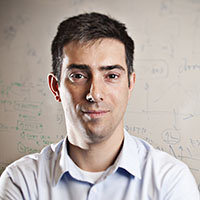
Modeling individual cognitive and behavioral trajectories from large-scale social media data
Johan Bollen
Indiana University
Thursday, November 04 at 3:00 PM Mexico Time
Contact: cgg@unam.mx
http://www.youtube.com/c/CentrodeCienciasdelaComplejidadC3
Abstract:
Millions of individuals leave behind detailed longitudinal traces that reflect their behavioral, cognitive, and emotional states on social media. Advances in machine learning, artificial intelligence, and natural language processing now allow us to detect and track these traces over time to construct longitudinal digital phenotypes for millions of individuals. This is a particularly powerful approach in mental health where disorders and risk factors vary extensively between individuals, often presenting with complex, variegated, and time-evolving symptomologies. In my talk I will provide an overview of my lab's research projects, in particular our efforts to better understand the relations between social media use and mental health. I will discuss 2 research projects in particular: detecting the lexical traces of cognitive distortions in online language and leveraging social network structure to understand the effects of social media on our well-being. I will discuss the potential pitfalls of this approach, and reflect on its considerable potential in bringing about a better understanding of the factors that shape human well-being.
Speaker Bio:
https://homes.luddy.indiana.edu/jbollen/
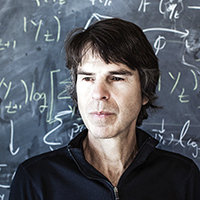
The stochastic thermodynamics of computation
David Wolpert
Santa Fe Institute
Thursday, October 21 at 1:00 PM Mexico Time
Contact: cgg@unam.mx
http://www.youtube.com/c/CentrodeCienciasdelaComplejidadC3
Abstract:
One of the major resource requirements of computers—ranging from biological cells to human brains to high-performance digital computers—is the energy used to run them. Those energy requirements of performing a computation have been a long-standing focus of research in statistical physics, going back (at least) to the early work of Landauer and colleagues.
However, one of the most prominent aspects of computers is that they are inherently non-equilibrium systems. They are also often quite small, far from the thermodynamic limit. Unfortunately, the research by Landauer and co-workers was grounded in the statistical physics of the 20th century, which could not properly address the thermodynamics of non-equilibrium, nanoscale systems.
Fortunately, recent revolutionary breakthroughs in stochastic thermodynamics have overcome the limitations of 20th century statistical physics. We can now analyze arbitrarily off-equilibrium systems, of arbitrary size. Here I show how to apply these recent breakthroughs to analyze the thermodynamics of computation. Specifically, I present formulas for the thermodynamic costs of implementing (loop-free) digital circuits, of implementing Turing machines, and of implementing multipartite processes like the interacting organelles in a cell.
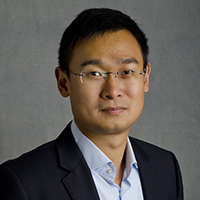
Initial Progress on the Science of Science
Dashun Wang
Northwestern University
Thursday, October 07 at 1:00 PM Mexico Time
Contact: cgg@unam.mx
http://www.youtube.com/c/CentrodeCienciasdelaComplejidadC3
Abstract:
The increasing availability of large-scale datasets that trace the entirety of the
scientific enterprise, have created an unprecedented opportunity to explore scientific
production and reward. Parallel developments in data science, network science, and
artificial intelligence offer us powerful tools and techniques to make sense of these
millions of data points. Together, they tell a complex yet insightful story about how
scientific careers unfold, how collaborations contribute to discovery, and how scientific
progress emerges through a combination of multiple interconnected factors. These
opportunities—and challenges that come with them—have fueled the emergence of a
multidisciplinary community of scientists that are united by their goals of understanding
science. These practitioners of the science of science use the scientific methods to study
themselves, examine projects that work as well as those that fail, quantify the patterns
that characterize discovery and invention, and offer lessons to improve science as a
whole. In this talk, I’ll highlight some examples of research in this area, hoping to illustrate
the promise of science of science as well as its limitations.
Speaker Bio:
Dashun Wang is an Associate Professor of Management and Organizations at
the Kellogg School of Management, and (by courtesy) the McCormick School of
Engineering, Northwestern University. At Kellogg, he is the Founding Director of the
Center for Science of Science and Innovation (CSSI). He is also a core faculty at the
Northwestern Institute on Complex Systems (NICO). His current research focus is on
Science of Science, a quest to turn the scientific methods and curiosities upon science
itself, hoping to use and develop tools from complexity sciences and artificial intelligence
to broadly explore the opportunities for innovation and promises of prosperity offered by
the recent data explosion in science. His research has been published repeatedly in
journals like Nature and Science, and has been featured in virtually all major global media
outlets, including The New York Times, Wall Street Journal, The Economist, Bloomberg,
Financial Times, The Today Show, Harvard Business Review, The Atlantic, World Economic
Forum, Forbes, The Guardian, The Washington Post, and The Boston Globe, among others.
Dashun is a recipient of multiple awards for his research and teaching, including the
AFOSR Young Investigator award, Poets & Quants Best 40 Under 40 Professors, Complex Systems Society’s Junior Scientific Award, Network Science Society’s Erdos-Renyi Award,
Thinkers50 Radar List 2021, and more. His first book, The Science of Science, coauthored
with Albert-Laszlo Barabasi, was published in March 2021.
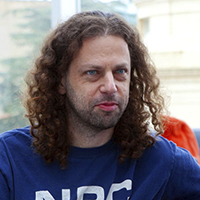
Opinion Models and Social Influence on Networks
Mason Porter
Department of Mathematics, UCLA
Thursday, September 02 at 1:00 PM Mexico Time
Contact: cgg@unam.mx
http://www.youtube.com/c/CentrodeCienciasdelaComplejidadC3
Abstract:
From the spreading of diseases and memes to the development of
opinions and social influence, dynamical processes are influenced heavily
by the networks on which they occur. In this talk, I'll discuss social
influence and opinion models on networks. I'll present a few types of
models --- including threshold models of social contagions, voter models
that coevolve with network structure, and bounded-confidence models with
continuous opinions --- and illustrate how such processes are affected by
the networks on which they occur. I'll also connect these models to
opinion polarization and the development of echo chambers in online social
networks.
Speaker Bio:
Mason Porter is a professor in the Department of Mathematics at UCLA.
He earned a B.S. in Applied Mathematics from Caltech in 1998 and a Ph.D.
from the Center for Applied Mathematics at Cornell University in 2002. He
held postdoctoral positions at Georgia Tech, the Mathematical Sciences
Research Institute, and Caltech. He joined the faculty at University of
Oxford in 2007 and moved to UCLA in 2016. Mason is a Fellow of the
American Mathematical Society, American Physical Society, and Society for
Industrial and Applied Mathematics. In recognition of his mentoring of
undergraduate researchers, Mason won the 2017 Council on Undergraduate
Research (CUR) Faculty Mentoring Award in the Advanced Career Category in
the Mathematics and Computer Science Division. Thus far, 24 students have
completed their doctoral degrees under Mason's mentorship, and Mason has
alsomentored several postdocs, more than 30 Masters students, and more than 90
undergraduate students on research projects. Mason's research interests lie in theory and
(rather diverse) applications of networks, complex systems, and nonlinear systems.
Homepage: https://www.math.ucla.edu/~mason/
Blog: http://masonporter.blogspot.com
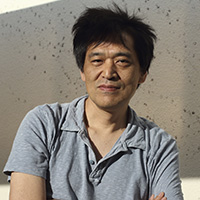
Can Mutual Imitation Generate Open-Ended Evolution?
Takashi Ikegami
University Tokio
Wednesday, June 23 at 6:00 PM Mexico Time
Contact: cgg@unam.mx
http://www.youtube.com/c/CentrodeCienciasdelaComplejidadC3
Abstract:
We only find open-ended evolution (OEE) in the development of human technology
or in the evolution of life itself.
The research on OEE at ALIFE aims to discover a mechanism that generates OEE
automatically in a computer or machine.
A potential mechanism and the conditions required have been discussed in three
previous workshops. In this study, we propose and discuss man--machine interaction
experiments as a new OEE mechanism.
The pertinent definition of OEE here is whether we can continue to create new
movements that are distinguishable to us.
We consider the development of body movement patterns generated when Alter3 androids
imitate each other and when Alter3 androids and humans imitate each other.
We use UMAP contraction and transfer entropy to measure these changes and
demonstrate that man--machine communication is far more dynamic and complex than the
machine--machine interaction. We discuss how human subjects can engender OEE via
communication with the android.
The Space of Possible Minds
Philip Ball
Thursday, May 27 at 1:00 PM
Contact: cgg@unam.mx
http://www.youtube.com/c/CentrodeCienciasdelaComplejidadC3
Abstract:
In 1984 computer scientist Aaron Sloman published a paper called “The structure
of the space of possible minds.” It called for systematic thinking about the vague
yet intuitive notion of mind, which was capable of admitting into the conversation
what we had then learnt about animal cognition and artificial intelligence. Almost
four decades later, we are in a fair better position to examine Sloman’s proposal:
to consider what kinds of minds can exist within the laws of physics, to compare
those we already recognize (including the diversity of human minds), and to
speculate about the possibilities for artificial “mind design”. In this talk I will
explore this question, looking at our current understanding of the functions and
capabilities of biological minds, what this might imply for efforts to create
artificial “minds”, and what the implications are for ideas about consciousness,
agency and free will.
Speaker
Bio:
Philip Ball is a freelance writer and author, and worked for many years as an editor
of Nature. His many books include Critical Mass (which won the 2005 Aventis Science
Books prize), Beyond Weird and How to Grow a Human. His next book, The Book of
Minds, will be published in early 2022.
Terraforming ecosystems with synthetic biology
Ricard Solé
ICREA-Complex Systems Lab UPF-IBE & Santa Fe Institute
Thursday, May 27 at 1:00 PM
Contact: cgg@unam.mx
Abstract:
Our planet is experiencing an accelerated process of change associated with a
variety of anthropogenic phenomena. The future of this transformation is uncertain,
but there is general agreement about its negative unfolding that might threaten our
own survival. Furthermore, the pace of the expected changes is likely to be abrupt:
catastrophic shifts might be the most likely outcome of this ongoing, apparently
slow process. Although different strategies for geo-engineering the planet have been
advanced, none seem likely to safely revert the large-scale problems associated to
carbon dioxide accumulation or ecosystem degradation. An alternative possibility
considered here is inspired in the rapidly growing potential for engineering living
systems. It would involve designing synthetic organisms capable of reproducing and
expanding to large geographic scales with the goal of achieving a long-term or a
transient restoration of ecosystem-level homeostasis. Such a regional or even
planetary-scale engineering would have to deal with the complexity of our biosphere.
It will require not only a proper design of organisms but also understanding their
place within ecological networks and their evolvability. This is a likely future
scenario that will require integration of ideas coming from currently weakly
connected domains, including synthetic biology, ecological and genome engineering,
evolutionary theory, climate science, biogeography and invasion ecology, among
others.
Speaker
Bio:
ICREA research professor at Pompeu Fabra University (UPF), head of the Complex
Systems Laboratory of the Institute of Evolutionary Biology (IBE), external
professor of Santa Fe Institute (New Mexico, USA) and ECLT fellow. His academic
training combines biology and physics, the discipline in which he did his PhD, and
he has focused his career as a researcher on complex systems: from the evolutionary
dynamics of viruses and synthetic biology to the great evolutionary transitions, the
emergence of cognition and the terraformation of ecosystems. His work has been
awarded with James McDonnell and ERC Advanced Grants.
Why AI is Harder Than We Think
Melanie Mitchell
Santa Fe Institute & Portland State University
Friday, May 14 at 1:00 PM
Contact: cgg@unam.mx
Abstract:
Since its beginning in the 1950s, the field of artificial intelligence has
cycled several times between periods of optimistic predictions and massive
investment (“AI Spring”) and periods of disappointment, loss of confidence, and
reduced funding (“AI Winter”). Even with today’s seemingly fast pace of AI
breakthroughs, the development of long-promised technologies such as self-driving
cars and housekeeping robots has turned out to be much harder than we thought.
One reason for these repeating cycles is a lack of understanding of the nature and
complexity of intelligence itself. In this talk I will discuss some fallacies in
common assumptions made by AI researchers, which can lead to overconfident
predictions about the field. I will also speculate on what is needed for the grand
challenge of making AI systems more robust, general, and adaptable—in short, more
intelligent.
Speaker
Bio:
Melanie Mitchell is the Davis Professor of Complexity at the Santa Fe Institute, and
Professor of Computer Science (currently on leave) at Portland State University. Her
current research focuses on conceptual abstraction, analogy-making, and visual
recognition in artificial intelligence systems. Melanie is the author or editor of
six books and numerous scholarly papers in the fields of artificial intelligence,
cognitive science, and complex systems. Her book Complexity: A Guided Tour (Oxford
University Press) won the 2010 Phi Beta Kappa Science Book Award and was named by
Amazon.com as one of the ten best science books of 2009. Her latest book is
Artificial Intelligence: A Guide for Thinking Humans (Farrar, Straus, and Giroux).
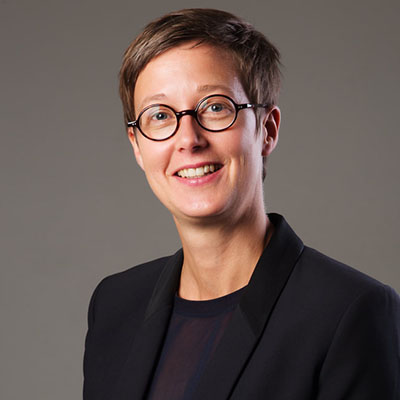
Complexity Science – From philosophical foundations to applications in climate and social science
Karoline Wiesner
University of Potsdam & Complexity Science Hub Vienna
Thursday, April 29 at 1:00 PM
Contact: cgg@unam.mx
Abstract:
Many people might not bother to define complexity, thinking that we know it when
we see it. Scientists should not afford such luxury. I will provide a compact but
comprehensive overview of the different ways that systems can be complex, offering
an aggregate definition. I will discuss the role of complexity measures, and why
complexity cannot be captured by a single number. This work was done in
collaboration with James Ladyman, published with Yale University Press in 2020.
At the other end of the spectrum of complexity science is the application to
real-world problems. I will present two examples from recent work. The project
'Aiding the mitigation of and adaptation to climate change using the tools of
complexity science' was done in collaboration with the Green Climate Fund, founded
by the UN members in 2014. Equally, political systems are more and more focus of
computational and mathematical investigations. I will present conceptual work on the
stability of democracy, a collaboration with an international and interdisciplinary
group of scientists.
Short
Bio:
Karoline Wiesner is Professor of Complexity Science at the University of Potsdam,
Germany, and External Faculty at the Complexity Science Hub Vienna. With a PhD in
physics from Uppsala University, Sweden, and postdoctoral research fellowships at
the Santa Fe Institute and the University of California, Davis, she joined the
faculty at the University of Bristol in 2007. In 2021 she joined the University of
Potsdam, Germany, as full professor. Karoline has held Visiting Research
Professorships at the Potsdam Institute for Climate Impact Research and at the
Institute for Theoretical Physics at Lund University. Karoline is an internationally
recognized expert on applied information theory and on the foundations of complexity
science. Her recent book on the subject, published by Yale University Press, was one
of Nature's "best science picks" in 2020. Her scholarly work has appeared in Nature
Communications, IEEE, and Royal Society journals, as well as journals of physics,
chemistry, computer science, and philosophy.
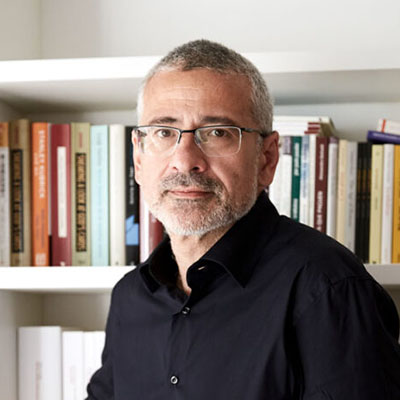
Computational Epidemiology at the time of COVID-19
Alessandro Vespignani
Network Science Institute at Northeastern University
Friday, April 9 at 1:00 PM
Contact: cgg@unam.mx
http://www.youtube.com/c/CentrodeCienciasdelaComplejidadC3
Abstract:
The data science revolution is finally enabling the development of large-scale
data-driven models that provide real- or near-real-time forecasts and risk analysis
for infectious disease threats. These models also provide rationales and
quantitative analysis to support policy-making decisions and intervention plans. At
the same time, the non-incremental advance of the field presents a broad range of
challenges: algorithmic (multiscale constitutive equations, scalability,
parallelization), real-time integration of novel digital data streams (social
networks, participatory platform, human mobility etc.). I will review and discuss
recent results and challenges in the area, and focus on ongoing work aimed at
responding to the COVID-19 pandemic.
Short
Bio:
Alessandro Vespignani is the Director of the Network Science Institute and Sternberg
Family Distinguished University Professor at Northeastern University. He is a
professor with interdisciplinary appointments in the College of Computer and
Information Science, College of Science, and the Bouvé College of Health Sciences.
Dr. Vespignani's work focuses on statistical and numerical simulation methods to
model spreading phenomena, including the realistic and data-driven computational
modeling of biological, social, and technological systems. For several years his
work has focused on the spreading of infectious diseases, working closely with the
CDC and the WHO.
The curious human
Danielle S. Bassett
University of Colorado Boulder & Santa Fe Institute
Thursday, March 25 at 1:00 PM
Contact: cgg@unam.mx
Abstract:
The human mind is curious. It is strange, remarkable, and mystifying; it is
eager, probing, questioning. Despite its pervasiveness and its relevance for our
well-being, scientific studies of human curiosity that bridge both the organ of
curiosity and the object of curiosity remain in their infancy. In this talk, I
will integrate historical, philosophical, and psychological perspectives with
techniques from applied mathematics and statistical physics to study individual
and collective curiosity. In the former, I will evaluate how humans walk on the
knowledge network of Wikipedia during unconstrained browsing. In doing so, we
will capture idiosyncratic forms of curiosity that span multiple millennia,
cultures, languages, and timescales. In the latter, I will consider the fruition
of collective curiosity in the building of scientific knowledge as encoded in
Wikipedia. Throughout, I will make a case for the position that individual and
collective curiosity are both network building processes, providing a connective
counterpoint to the common acquisitional account of curiosity in humans.
Short
Bio:
Prof. Bassett is the J. Peter Skirkanich Professor at the University of
Pennsylvania, with appointments in the Departments of Bioengineering, Electrical
& Systems Engineering, Physics & Astronomy, Neurology, and Psychiatry. Bassett
is also an external professor of the Santa Fe Institute. Bassett is most
well-known for blending neural and systems engineering to identify fundamental
mechanisms of cognition and disease in human brain networks. Bassett is
currently writing a book for MIT Press entitled Curious Minds, with co-author
Perry Zurn Professor of Philosophy at American University. Bassett received a
B.S. in physics from Penn State University and a Ph.D. in physics from the
University of Cambridge, UK as a Churchill Scholar, and as an NIH Health
Sciences Scholar. Following a postdoctoral position at UC Santa Barbara, Bassett
was a Junior Research Fellow at the Sage Center for the Study of the Mind.
Bassett has received multiple prestigious awards, including American
Psychological Association's ‘Rising Star’ (2012), Alfred P Sloan Research Fellow
(2014), MacArthur Fellow Genius Grant (2014), Early Academic Achievement Award
from the IEEE Engineering in Medicine and Biology Society (2015), Harvard Higher
Education Leader (2015), Office of Naval Research Young Investigator (2015),
National Science Foundation CAREER (2016), Popular Science Brilliant 10 (2016),
Lagrange Prize in Complex Systems Science (2017), Erdos-Renyi Prize in Network
Science (2018), OHBM Young Investigator Award (2020), AIMBE College of Fellows
(2020). Bassett is the author of more than 300 peer-reviewed publications, which
have garnered over 27,000 citations, as well as numerous book chapters and
teaching materials. Bassett is the founding director of the Penn Network
Visualization Program, a combined undergraduate art internship and K-12 outreach
program bridging network science and the visual arts. Bassett’s work has been
supported by the National Science Foundation, the National Institutes of Health,
the Army Research Office, the Army Research Laboratory, the Office of Naval
Research, the Department of Defense, the Alfred P Sloan Foundation, the John D
and Catherine T MacArthur Foundation, the Paul Allen Foundation, the ISI
Foundation, and the Center for Curiosity.
Nearly-optimal prediction of missing links in networks
Aaron Clauset
Abstract:
Predicting missing links in networks is a fundamental task in network
analysis and modeling. However, current link prediction algorithms exhibit
wide variations in their accuracy, and we lack a general understanding of
which methods work better in which contexts. In this talk, I'll describe a
novel meta-learning solution to this problem, which makes predictions that
appear to be nearly optimal by learning to combine three classes of
prediction methods: community detection algorithms, structural features like
degrees and triangles, and network embeddings. We evaluate 203 component
methods individually and in stacked generalization on (i) synthetic data
with known structure, for which we analytically calculate the optimal link
prediction performance, and (ii) a large corpus of 548 structurally diverse
networks from social, biological, technological, information, economic, and
transportation domains. Across settings, supervised stacking nearly always
performs best and produces nearly-optimal performance on synthetic networks.
Moreover, we show that accuracy saturates quickly, and near-optimal
predictions typically requires only a handful of component methods. Applied
to real data, we quantify the utility of each method on different types of
networks, and then show that the difficulty of predicting missing links
varies considerably across domains: it is easiest in social networks and
hardest in technological networks. I'll close with forward-looking comments
on the limits of predictability for missing links in complex networks and on
the utility of stacked generalizations for achieving them.
Joint work with Amir Ghasemian, Homa Hosseinmardi, Aram Galstyan, and
Edoardo Airoldi.
Short
Bio:
Aaron Clauset is an Associate Professor in the Department of Computer
Science and the BioFrontiers Institute at the University of Colorado
Boulder, and is External Faculty at the Santa Fe Institute. He received a
PhD in Computer Science, with distinction, from the University of New
Mexico, a BS in Physics, with honors, from Haverford College, and was an
Omidyar Fellow at the prestigious Santa Fe Institute. In 2016, he was
awarded the Erdos-Renyi Prize in Network Science, and since 2017, he has
been a Deputy Editor responsible for the Social, Computing, and
Interdisciplinary Sciences at Science Advances.
Clauset is an internationally recognized expert on network science, data
science, and machine learning for complex systems. His work has appeared in
many prestigious scientific venues, including Nature, Science, PNAS, SIAM
Review, Science Advances, Nature Communications, AAAI, and ICDM. His work
has also been covered in the popular press by Quanta Magazine, the Wall
Street Journal, The Economist, Discover Magazine, Wired, the Boston Globe
and The Guardian.

Network-based dynamic modeling of biological systems: toward understanding and control
Réka Albert
Pennsylvania State University
Thursday, January 28, 2021
Contact: cgg@unam.mx

La investigación sobre COVID-19: Un enfoque cienciométrico
Ricardo Arencibia-Jorge
Centro de Ciencias de la Complejidad-C3, UNAM
Thursday, November 26, 2020
Contact: cgg@unam.mx

El impacto económico de COVID-19 en industrias y profesiones
Rita Maria del Rio Chanona
Universidad de Oxford
Thursday, October 29, 2020
Contact: cgg@unam.mx
COVID-19: ¿a qué nos enfrentamos?
Laura Vargas-Parada
Facultad de Ciencias y Centro de Ciencias de la Complejidad-C3, UNAM
Thursday, October 1, 2020
Contact: cgg@unam.mx

Acciones del C3 frente a la COVID-19
Christopher Stephens, América Guadalupe Arroyo Valerio, Ruben Fossion, Andrés Alejandro Aguado García, Octavio Abraham Bureos Lecona, René Márquez Franco
Instituto de Ciencias Nucleares, Hospital General de México, Instituto de Ciencias Físicas, Posgrado en Ciencias Biomédicas, Centro de Ciencias de la Complejidad-C3, UNAM
Jueves 24 de septiembre de 2020
Contact: cgg@unam.mx

Ciencia ciudadana ante la COVID-19
Carlos Gershenson, Marco A. Rosas Pulido, Ricardo Antonio Escamilla Santiago, Romel Calero, Gabriel García, Juan Claudio Toledo-Roy
IIMAS, Facultad de Medicina-UNAM, Instituto de Ciencias Nucleares, Centro de Ciencias de la Complejidad-C3,UNAM
Martes 22 de Septiembre de 2020
Contact: cgg@unam.mx

Complejidad del sistema nacional de ciencia, tecnología e innovación
Julia Tagüeña
Instituto de Energías Renovables
Jueves 27 de Agosto de 2020
Contact: cgg@unam.mx
El lenguaje de las matemáticas: historia de sus símbolos
Raúl Rojas
Universidad Libre de Berlín
25 de Junio de 2020
Contact: cgg@unam.mx
What is Life? The Future of Biology.
Stuart A. Kauffman
The Karolinska Institute
Jueves 11 de Junio de 2020
Contact: cgg@unam.mx
Epidemias globales: pasado, presente y futuro.
Yamir Moreno
Complex Systems & Networks Lab (COSNET), Instituto Biocomputación y Física de Sistemas
Jueves 30 de Abril de 2020
Contact: cgg@unam.mx
COVID and Scientific Prediction for Policy.
Yaneer Bar-Yam
New England Complex Systems Institute
Jueves 28 de Mayo de 2020
Contact: cgg@unam.mx
Tune in for the live stream on our YouTube chanel.
1:00 pm - 3:00pm Mexico City Time
Contact: cgg@unam.mx
